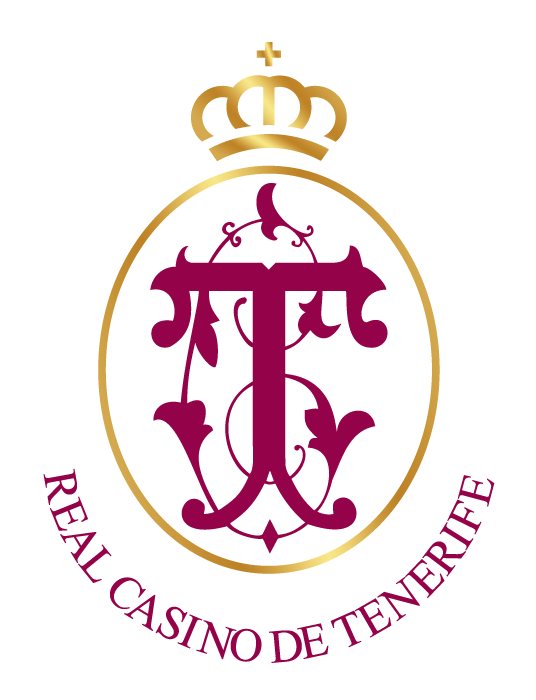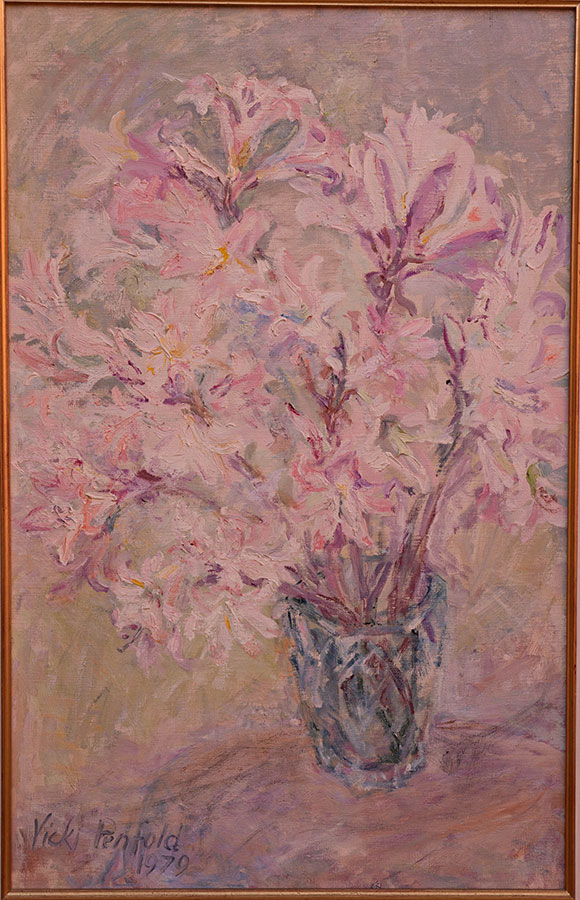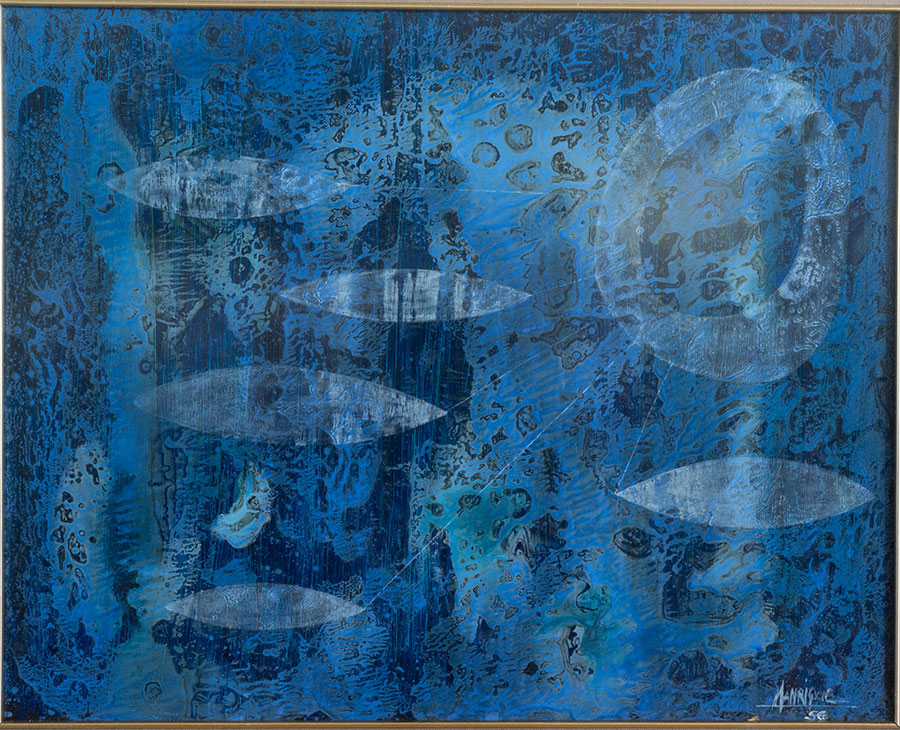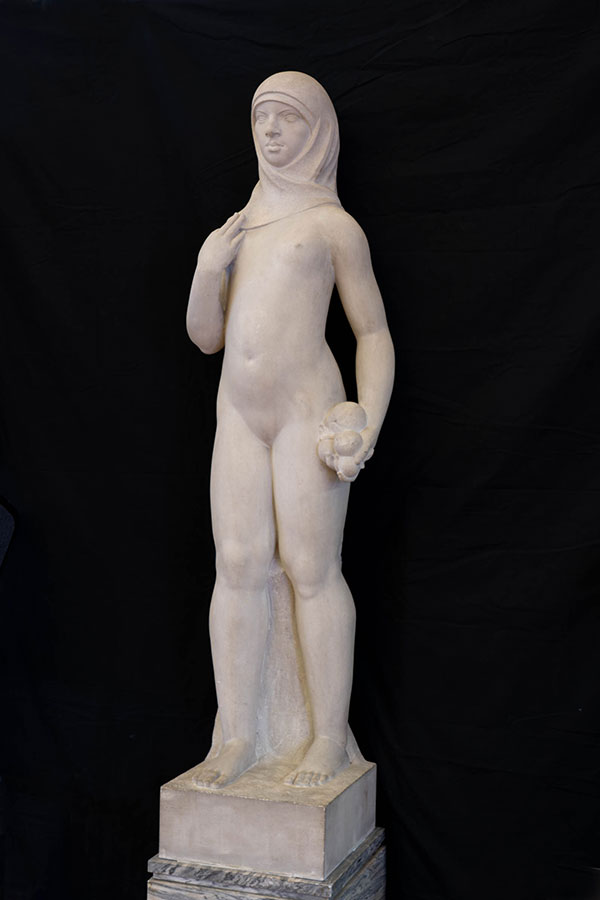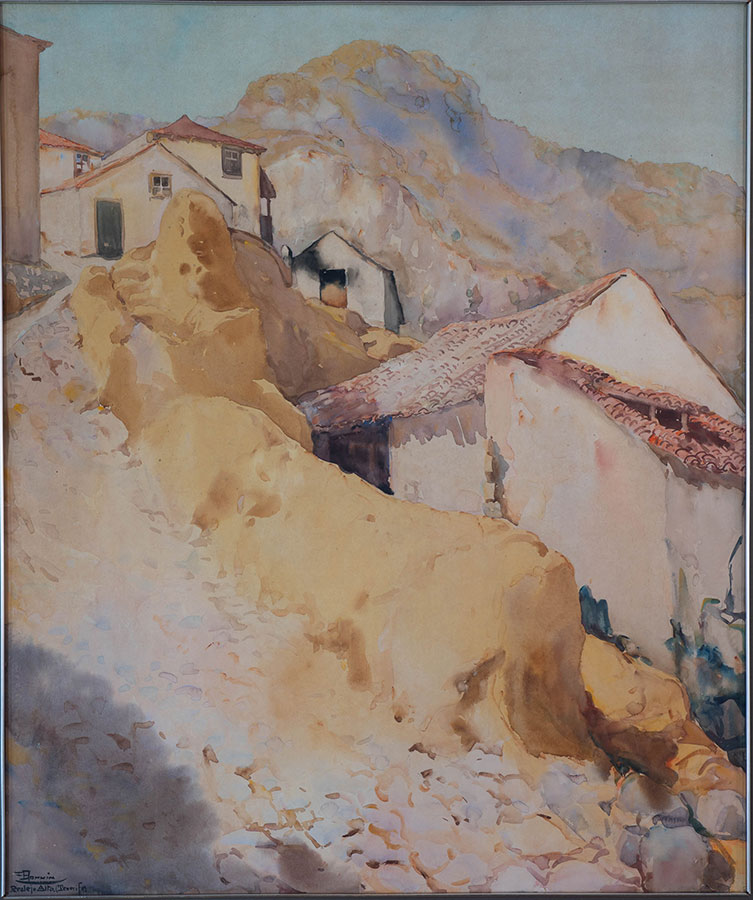
- Type of work: Painting on paper
- Technique: Watercolor on paper
- Approximate dimensions: 55 x 46 cm
- Subject: Landscape
- Title: Cloudy in Las Toscas
- Author: Francisco Bonnin Guerín (1874-1963)
- Chronology or Year: 1933
- Historical-artistic analysis:
Style: Landscape painting, in direct contact with nature (plenairist), following the expressionist guidelines characteristic of Bonnín’s Brandt period (1931-1933).
Description: With a slight change in the framing, this is the view of the same place of Los Realejos represented in the watercolors with landscapes of this area. On this occasion, a house with tiles and a wall covered with a vine occupies the foreground next to the steep road that leads to a farmhouse on the top, cut out against a monumental mountain that, with the sky in the background, closes the scene. The upward movement of the composition stands out, where the fundamental lines of the drawing have been built by color, by the thick stroke of the brush and the succession of stains, replacing the winged touch of the brush and the picturesque theme of previous periods. With the same sincerity as always before the island landscape, there is a new vitalism in his approach to nature, dispensing now with the friendly and flowery to show us the rugged vision of our peaks, scrutinizing the variations that occur in the palette under the influence of changes in light.
Date of receipt: After 1934.
Remarks: Five landscapes of the island adorned the walls of the mezzanine of the Casino in 1964, as Valeriano Weyler tells us in his history of the Casino.
About the author: Francisco Bonnín Guerín (Santa Cruz de Tenerife, 1874- Puerto de la Cruz, 1963) began his training with Ubaldo Bordanova as a student at the Municipal Academy of Drawing, being Verdugo Bartlett (1860-1895) the one who introduced him to the watercolor technique. He studied the military career in Segovia, entering in 1897, and since then he has alternated his military career with painting. In his first stage (around 1915) his watercolors are of small format, with great meticulousness in the rendering of details. In 1923 he went to Girona as a commander and came into contact with the Agrupación de Acuarelistas de Cataluña. On his return to Tenerife, he promoted the creation of the Círculo de Bellas Artes, where he established a drawing and painting academy in 1928. In 1927 and 1928 he held two exhibitions in the Circle with which he introduced the Agrupación de Acuarelistas de Cataluña in the Canary Islands, sowing the seed of the Agrupación de Acuarelelistas Tinerfeños, created in 1944. Between 1931-35 he developed his expressionist stage under the influence of Bruno Brandt, stripping himself of the excessive draftsmanship and giving the stain and color a greater freedom. The decade 1936-46 is the decade of diffusion and greater recognition of his work. With a luminous and colorful painting he became known in Switzerland, England and in many cities of the Peninsula, receiving the National Watercolor Prize in 1942. He increased his prestige by exhibiting in Madrid at the Palace of Santa Cruz, headquarters of the Ministry of Foreign Affairs in 1945 and 1946, and was named academician of Fine Arts of San Fernando in 1947, year in which the Agrupación de Acuarelistas Canarios was born under his presidency.
Bibliography:
Archive of the Casino de Tenerife. Documentation concerning the composition of the Board during the early 1900s.
Carmen GONZÁLEZ COSSÍO: Francisco Bonnín. Viceconsejería de Cultura y Deportes del Gobierno de Canarias, Santa Cruz de Tenerife, 1993.
Valeriano WEYLER: The small history of a great casino (The one in Santa Cruz de Tenerife). Santa Cruz de Tenerife, 1964.
Agustín GUIMERÁ RAVINA, Alberto DARIAS PRÍNCIPE: El Casino de Tenerife 1840 – 1990, Santa Cruz de Tenerife, 1992.

